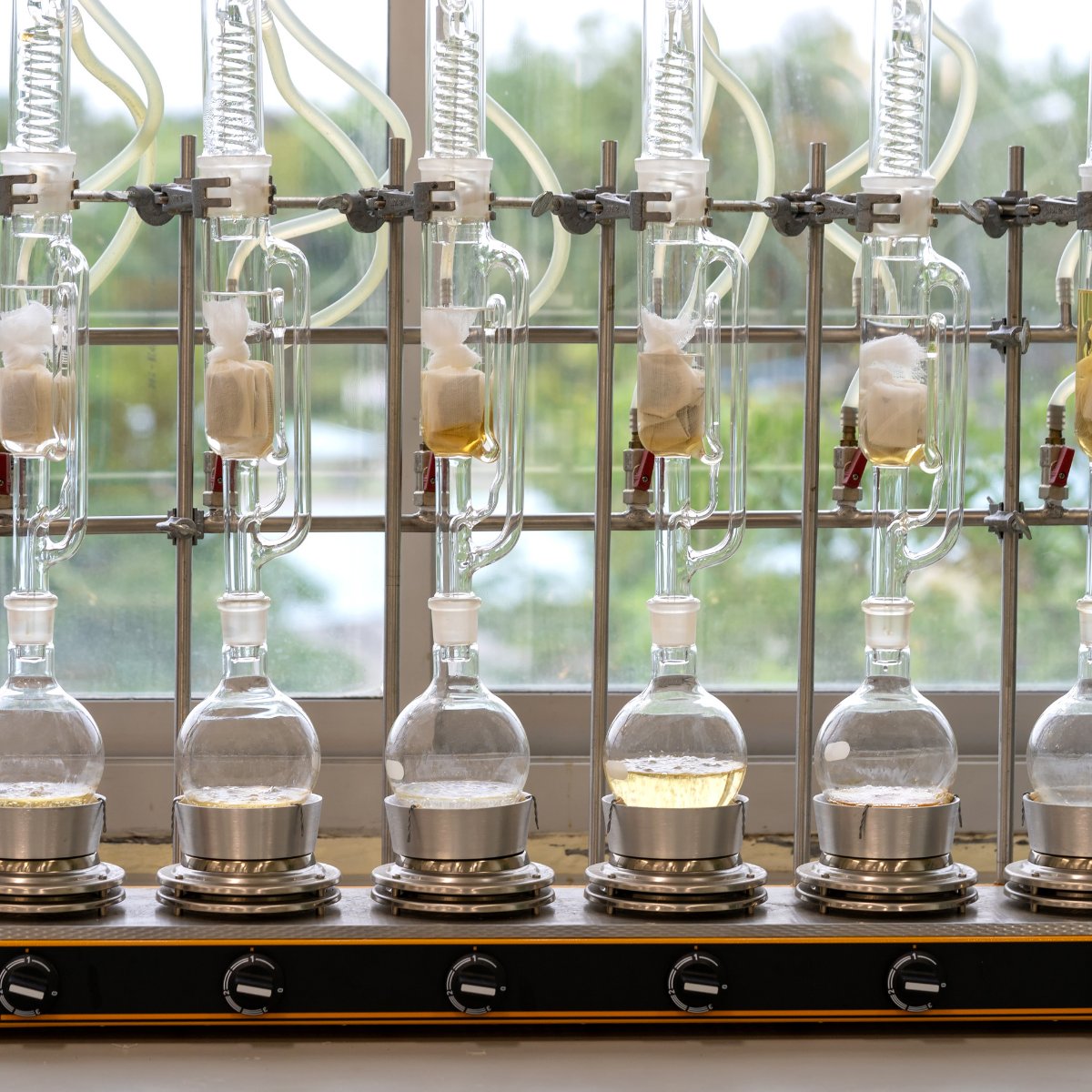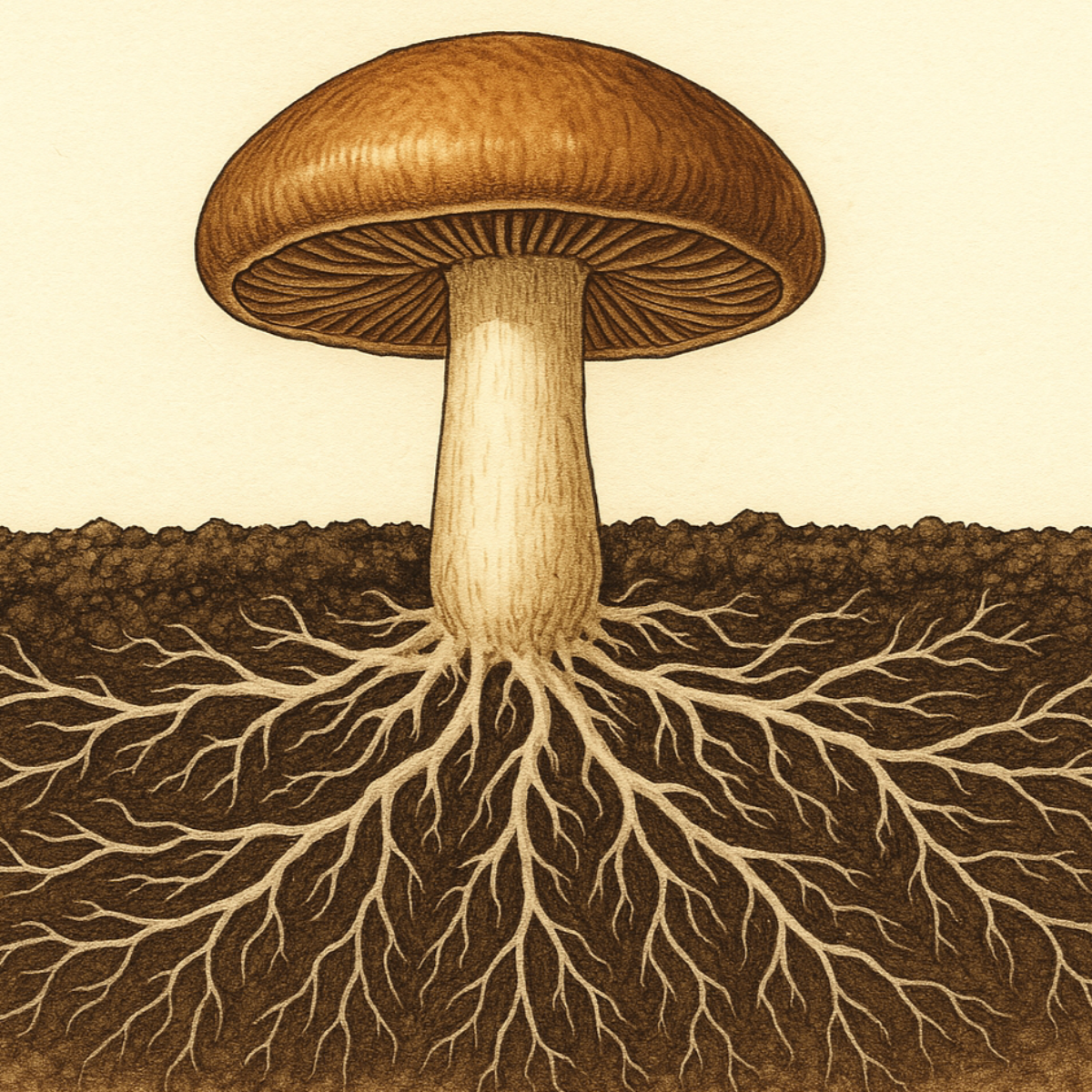
5 Things We've Learned About Mushroom Extraction
And Why Extraction Matters!
Unlike many industrial mushroom products that rely on ultrasonic, high-heat, or solvent-heavy extractions, Druzy Fusion follows time-tested dual/triple extraction methods using only ethanol and water.
Emerging studies suggest that excessive heat, novel solvents, and mechanical shearing can degrade or alter key compounds like β-glucans and triterpenes—potentially reducing their clinical efficacy. Our approach safeguards the full therapeutic profile of each mushroom.
Here are five key things we've learned through our research that drive our policies and procedures:
1. Solvent Choice is Important
(Water & Ethanol vs. Other Solvents)
Evidence:
- Water is optimal for extracting high-molecular-weight β-glucans, which modulate immune response.
- Ethanol is necessary for triterpenes, polyphenols, and other fat-soluble compounds.
- A 2022 study* on Red Reishi (Ganoderma lucidum) showed that aqueous ethanol (20–50%) extracts both polysaccharides and triterpenes effectively, but other solvents resulted in less stable or less bioactive extracts.
Implication: Ethanol-water extracts balance polarity and preserve key bioactives; exotic solvents (e.g., methanol, supercritical CO₂) may alter compound profiles and safety.
*Wang et al., Molecules, 2022 – Optimization of Reishi Dual Extraction
2. Ultrasonic and Industrial Extraction Can Damage Polysaccharide Integrity
Evidence:
- Ultrasonic extraction methods fragment long-chain β-glucans—reducing their molecular weight and potentially altering their immunomodulatory function.
- A 2021 study* showed ultrasound-assisted β-glucan extraction from Grifola frondosa led to smaller polysaccharides with lower bioactivity in macrophage activation assays.
Implication: While ultrasonic extraction may increase yield and/or shorten extraction time, it may sacrifice therapeutic integrity, especially for immune-modulating polysaccharides. Unfortunately, it has become very popular.
*Zhao et al., Carbohydrate Polymers, 2021 – Ultrasonic Degradation of β-Glucans
3. High-Temperature Drying and Oxidative Damage
Evidence:
- Heat-sensitive compounds like ganoderic acids, ergothioneine, and phenolics degrade above 60–70°C.
- A 2020 study* found that drying Reishi mushrooms at higher temperatures reduced triterpene content by up to 33% compared to low-temperature drying.
Implication: Industrial-scale drying and powdering (often used for shipping and shelf stability) may lower clinical efficacy before extraction even begins.
*Shang et al., Food Chemistry, 2020 – Heat Degradation of Ganoderic Acids
4. Full-Spectrum vs. Fractionated Extracts
Evidence:
- Recent reviews emphasize the synergistic interaction between various classes of compounds in mushrooms—β-glucans, triterpenes, polyphenols, ergosterol derivatives, and peptides.
- The entourage effect appears critical to their full therapeutic action.
Implication: Fractionated extracts (e.g., only β-glucan powders, isolated active compounds, etc.) or harsh processing may fail to replicate the effects observed in whole-fruiting-body clinical trials.
*Gupta et al., Frontiers in Pharmacology, 2023 – Therapeutic Matrix of Mushroom Compounds
5. Traditional Pharmacopeias Still Use Water and Ethanol
Evidence:
- The Chinese Pharmacopeia and Japanese Kampo system still prescribe mushroom extracts via hot water decoction and ethanol tincture methods*.
- These practices are rooted in centuries of clinical observation and remain in use in formal herbal medicine systems.
Implication: Traditional dual extraction remains clinically validated through practice, whereas many modern commercial extracts have no equivalent track record.
Ying et al., Chinese Materia Medica, 2012 – Preparation of Medicinal Mushrooms (textbook)
Togashi et al., 2017 – Role of Kampo in Modern Oncology
Choose Druzy Fusion full-spectrum, fruiting body mushroom supplements.
*These statements have not been evaluated by the FDA. Druzy Fusion products are not intended to diagnose, treat or cure any disease


Leave a comment
This site is protected by hCaptcha and the hCaptcha Privacy Policy and Terms of Service apply.